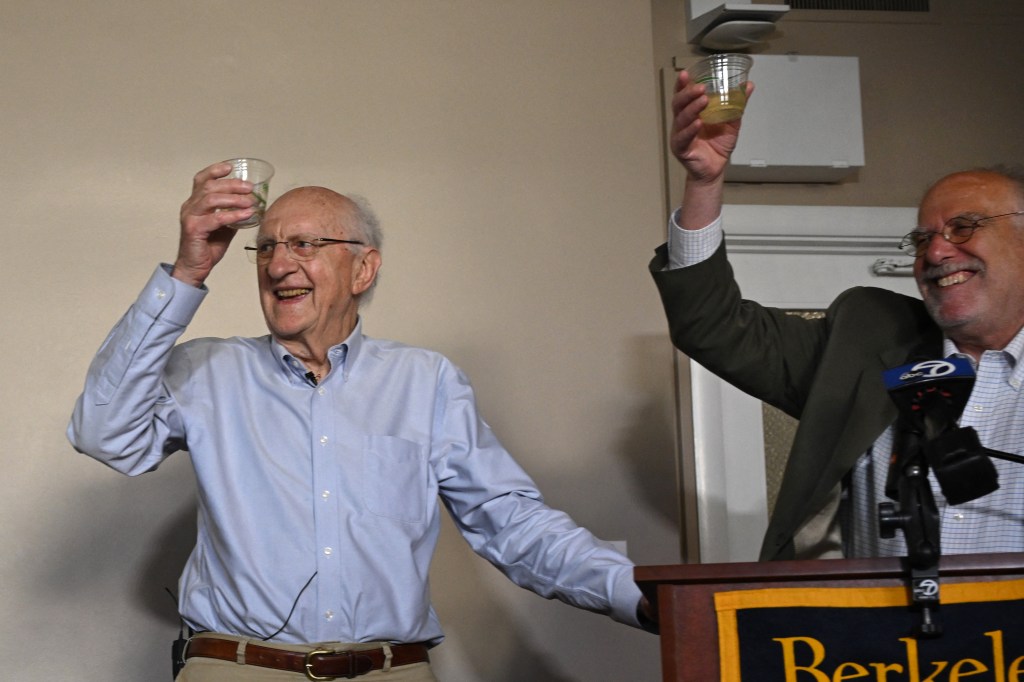 John Clarke (left), emeritus professor of physics at the University of California, Berkeley, on October 7, 2025. Karl Mondon/AFP/Getty Images
John Clarke (left), emeritus professor of physics at the University of California, Berkeley, on October 7, 2025. Karl Mondon/AFP/Getty ImagesIt’s official: John Clarke, Michel Devoret, and John Martinis
have won the Nobel Prize in Physics for their research into quantum mechanics.
(Per the Nobel committee, it’s specifically “for the discovery of macroscopic quantum mechanical tunnelling and energy quantisation in an electric circuit,” but I’m sure you already knew that.)
Clarke conducted his research at the University of California, Berkeley; Martinis at UC Santa Barbara; and Devoret at Yale and also at UC Santa Barbara.
Two of the three have ties to Google: Martinis headed Google's Quantum Artificial Intelligence Lab until 2020; Devoret is currently the chief scientist of Google Quantum AI.
The Nobel committee said the trio’s work—on display in the transistors of any computer chip—will help facilitate the development of “the next generation of quantum technology, including quantum cryptography, quantum computers, and quantum sensors.”
The researchers will share a cash award of 11 million Swedish kronor (almost $1.2 million) and lifelong respect in their field.
It’s hardly the first time tech pioneers have won the Nobel Prize in Physics. Just last year, AI luminaries John Hopfield and Geoffrey Hinton
won for their “foundational discoveries” in machine learning and artificial neural networks.
—AN